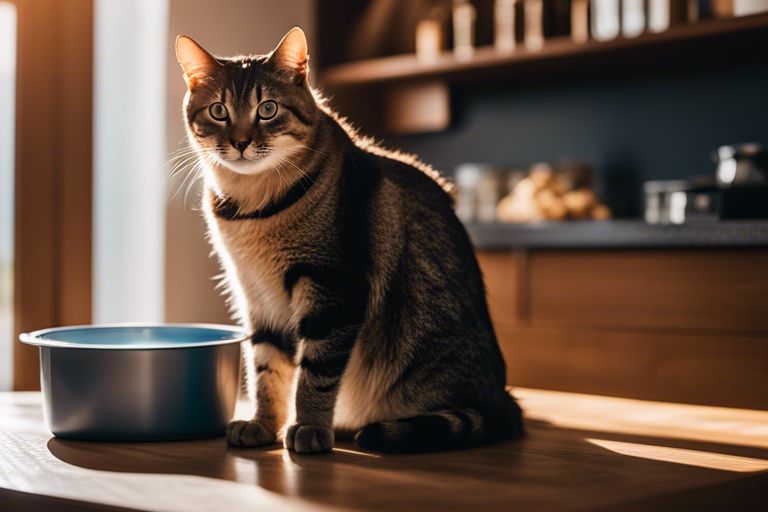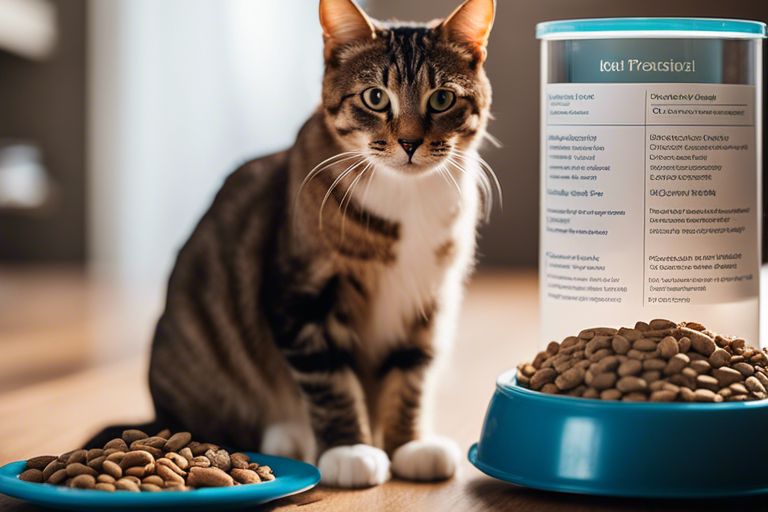Have you noticed your feline companion exhibiting unusual behavior or experiencing weight loss? Hyperthyroidism in cats is a common condition that occurs when the thyroid gland becomes overactive. If left untreated, it can lead to serious health complications. It’s important to be aware of the signs and symptoms so that you can seek veterinary care as soon as possible. Common symptoms of hyperthyroidism in cats include increased appetite, weight loss, restlessness, vomiting, and diarrhea. Keep an eye out for these warning signs in your cat and consult with a professional to determine the best course of action for their health.
Key Takeaways:
- Increased appetite: Cats with hyperthyroidism often exhibit a noticeable increase in appetite, leading to weight loss despite eating more.
- Hyperactivity: Hyperthyroid cats may show signs of restlessness, hyperactivity, and increased excitability.
- Excessive thirst and urination: These cats may drink and urinate more frequently than normal.
- Vomiting and diarrhea: Gastrointestinal symptoms such as vomiting and diarrhea can occur in cats with hyperthyroidism.
- Changes in coat and skin: Hyperthyroid cats might have unkempt, greasy, or matted fur, and their skin may become thinner and more fragile.

Identifying Symptoms of Hyperthyroidism
Clearly, being able to identify the symptoms of hyperthyroidism in your cat is crucial for their well-being. You should monitor your cat’s behavior and physical appearance closely in order to catch any indications of this condition as early as possible.
Behavioral Changes
If you notice that your cat is more restless than usual, is displaying increased irritability, or is experiencing sudden aggression, it could be a sign of hyperthyroidism. Additionally, you may observe excessive vocalization, anxiety, or significant changes in their daily routines. These behavioral changes can often be a strong indicator that something is not right with your cat’s health.
Physical Manifestations
When it comes to the physical symptoms of hyperthyroidism, you should pay attention to any sudden weight loss despite a good appetite. Your cat may develop a ravenous hunger but still lose weight due to a faster metabolic rate. Other signs can include increased thirst and urination, vomiting, diarrhea, unkempt fur, and an overall unhealthy, unkempt appearance. Additionally, you may notice an enlarged thyroid gland in the neck area, indicating a potential issue with the thyroid.
Diagnostic Approaches
Now that you’ve learned about the symptoms of hyperthyroidism in your cat, it’s important to understand the diagnostic approaches that veterinarians use to confirm the condition. Diagnostic testing is crucial for determining the most effective treatment plan for your feline friend.
Veterinary Examinations
When you bring your cat to the veterinarian with suspected hyperthyroidism, the first step is a thorough physical examination. This may involve feeling for palpable enlargement of the thyroid gland in your cat’s neck and checking for other physical signs of hyperthyroidism, such as rapid heart rate and high blood pressure. Your veterinarian will also inquire about your cat’s health history and any changes in behavior or appetite that you may have noticed. These examinations are essential in identifying red flags that may point towards hyperthyroidism in your cat.
Laboratory Tests and Imaging
After the initial examination, your veterinarian will likely recommend laboratory tests to confirm the diagnosis of hyperthyroidism. Blood tests are commonly used to measure the levels of thyroid hormones in your cat’s blood. Thyroid hormone levels are typically elevated in cats with hyperthyroidism. In addition, imaging techniques such as ultrasound may be used to visualize the thyroid gland and assess its size and appearance. These tests play a crucial role in confirming the diagnosis of hyperthyroidism in your cat.
Consequences of Untreated Hyperthyroidism
Not addressing hyperthyroidism in your cat can lead to severe consequences. According to the Disorders of the Thyroid Gland in Cats – Cat Owners, untreated hyperthyroidism can have a significant impact on your cat’s health and may lead to potential complications.
Impact on Feline Health
If left untreated, hyperthyroidism can have a detrimental effect on your cat’s overall health. The condition can lead to weight loss, despite an increase in appetite, which can eventually lead to muscle wastage and weakness. Additionally, hyperthyroidism can also affect your cat’s heart, potentially leading to high blood pressure and an increased risk of heart disease. It is crucial to address hyperthyroidism promptly to prevent these health issues from progressing.
Potential Complications
Untreated hyperthyroidism can also result in potential complications for your cat. One of the most serious complications is the development of a life-threatening condition called thyroid storm, characterized by extremely high blood pressure, heart rate, and body temperature. Additionally, untreated hyperthyroidism can also increase the risk of other secondary conditions such as kidney disease and diabetes. Ignoring the symptoms of hyperthyroidism can lead to severe and potentially life-threatening complications for your cat.
Managing Hyperthyroidism in Cats
Despite the concerning symptoms of hyperthyroidism in your cat, the good news is that it can be managed effectively with the right treatment and care. Once your cat has been diagnosed with hyperthyroidism, your veterinarian will work with you to create a custom treatment plan that is tailored to your cat’s specific needs.
Treatment Options
When it comes to treating your cat’s hyperthyroidism, there are a few options available. The most common treatment options include medication, radioactive iodine therapy, and surgery. Your veterinarian will discuss the pros and cons of each option with you, taking into consideration your cat’s age, overall health, and the severity of the hyperthyroidism. It’s important to follow your veterinarian’s recommendations closely and to administer medications as directed. In some cases, your cat may require ongoing medication or additional treatments to manage their condition.
Long-Term Care and Monitoring
Once your cat’s hyperthyroidism is being managed, it’s important to establish a long-term care plan. This may involve regular check-ups with your veterinarian to monitor your cat’s thyroid levels and overall health. You may also need to make adjustments to your cat’s diet or lifestyle to support their ongoing wellbeing. Your veterinarian will provide you with guidance on how to best care for your cat and how to recognize any signs of potential complications. Consistent monitoring and proper management of your cat’s hyperthyroidism will help to ensure they lead a healthy and happy life.
Conclusion
Following this overview of the symptoms of hyperthyroidism in cats, it is important to be vigilant and observant of your feline companion’s behavior and health. If you notice any significant changes such as increased appetite, weight loss, or excessive thirst, it is crucial to seek veterinary guidance and evaluation. Early detection and proper management of hyperthyroidism can greatly improve your cat’s quality of life and overall health. By staying informed and proactive, you can ensure the well-being of your furry friend.
FAQ
Q: What are the symptoms of hyperthyroidism in cats?
A: The symptoms of hyperthyroidism in cats may include weight loss despite increased appetite, increased thirst and urination, vomiting, diarrhea, unkempt appearance, hyperactivity, irritability, and a rapid or irregular heartbeat.
Q: How is hyperthyroidism in cats diagnosed?
A: Hyperthyroidism in cats is typically diagnosed through a combination of physical examination, blood tests to measure thyroid hormone levels, and possibly additional tests such as ultrasound or radioactive iodine uptake scans.
Q: What are the treatment options for hyperthyroidism in cats?
A: Treatment options for hyperthyroidism in cats may include medication to control thyroid hormone levels, a special diet low in iodine, radioactive iodine therapy, or surgical removal of the thyroid gland. Each option has its own benefits and considerations, and your veterinarian will help determine the most appropriate treatment for your cat.

Jayley, a devoted cat enthusiast, also writer for other cat blog as well. She aims to dedicated to providing comprehensive information, insights, and advice on everything you’d ever want to know about our whiskered companions.
